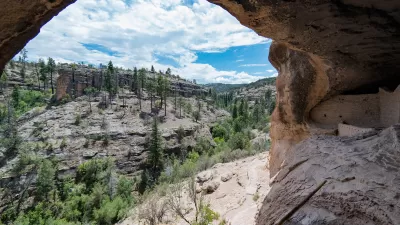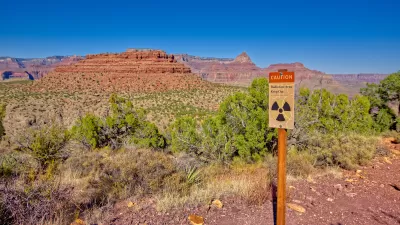Enterprising Native American communities are using their sovereignty to approve large projects that would be difficult to clear on neighboring lands, like landfills and casinos. Industry is happy to oblige, and directly targets the Native market.
"The conflicts are set to get worse as urban development sprawls toward rural areas where most Indian reservations are located, said David Bricklin, a Seattle attorney who represents communities fighting reservation development, most recently in a losing battle against an outdoor concert venue on land belonging to the Muckleshoot Indian Tribe, 25 miles south of Seattle.
Bricklin said state politicians and city and town leaders often refuse to take on Indian nations, which have become major donators to political candidates. Bricklin also said opponents are branded racists by development supporters. 'You get accused of being prejudiced against the tribes if you dare to challenge the project,' he said.
But John Dossett, general counsel for the National Congress of American Indians, said land use battles cut both ways. Tribal land and people have been far more heavily impacted by development outside reservations, he said. 'It is more than a little unfair that tribes, who have been among the last to receive the benefits of economic development, would be expected to keep their lands pristine while everyone has developed all around them.'"
FULL STORY: Outsiders Target Indian Land for Risky Business

Maui's Vacation Rental Debate Turns Ugly
Verbal attacks, misinformation campaigns and fistfights plague a high-stakes debate to convert thousands of vacation rentals into long-term housing.

Planetizen Federal Action Tracker
A weekly monitor of how Trump’s orders and actions are impacting planners and planning in America.

San Francisco Suspends Traffic Calming Amidst Record Deaths
Citing “a challenging fiscal landscape,” the city will cease the program on the heels of 42 traffic deaths, including 24 pedestrians.

Defunct Pittsburgh Power Plant to Become Residential Tower
A decommissioned steam heat plant will be redeveloped into almost 100 affordable housing units.

Trump Prompts Restructuring of Transportation Research Board in “Unprecedented Overreach”
The TRB has eliminated more than half of its committees including those focused on climate, equity, and cities.

Amtrak Rolls Out New Orleans to Alabama “Mardi Gras” Train
The new service will operate morning and evening departures between Mobile and New Orleans.
Urban Design for Planners 1: Software Tools
This six-course series explores essential urban design concepts using open source software and equips planners with the tools they need to participate fully in the urban design process.
Planning for Universal Design
Learn the tools for implementing Universal Design in planning regulations.
Heyer Gruel & Associates PA
JM Goldson LLC
Custer County Colorado
City of Camden Redevelopment Agency
City of Astoria
Transportation Research & Education Center (TREC) at Portland State University
Jefferson Parish Government
Camden Redevelopment Agency
City of Claremont




























